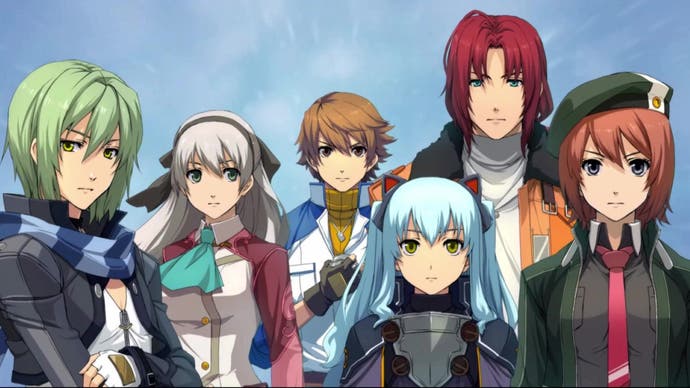The Legend of Heroes: Trails to Azure review - Nihon Falcom serves up another fine RPG
For whom the Crossbell tolls.
For all of Lloyd's talk about overcoming barriers, Trails to Azure faced many before finally reaching the West. Nearly twelve years after its initial PSP release, Nihon Falcom's RPG arrives hot on the heels of Trails from Zero, with NIS America licensing a popular fan translation. It's a crucial release before the upcoming Trails into Reverie, which serves as a joint epilogue for both Crossbell and the Cold Steel arc. Azure's release was a long time coming, but it's a worthy follow-up that builds on Zero's strengths.
If you didn't beat Trails From Zero first, fix that immediately. Azure assumes your familiarity with what happened before - although jumping in without playing the Trails in the Sky trilogy will be fine, as much as diving into such a large series might seem daunting. Going through Sky first adds context to a few scenes, but a wide cast of returning characters fills any crucial blanks. I'd also recommend playing both on the same console; a cleared Zero save file is transferable into Azure and adds some appreciated bonuses. EXP levels carry over, fishing rank, and Detective Points are all accounted for, while certain scenes play out differently depending on prior choices. Don't expect any drastic changes like Mass Effect would offer, but it's a lovely touch that helps maintain your own continuity between both RPGs.
Azure itself takes place several months after Zero, and starts by tying up some loose ends. Like before, we're playing as Lloyd Bannings, the leader of this charismatic group, and this time we're welcoming two recruits into the Crossbell police department's Special Support Section (SSS). Crossbell retains that strong character we previously saw across this city-state, but new conflicts threaten this uneasy peace under the surface.
Structurally, Azure is almost identical to Zero and most chapters see the SSS tackling public requests that the wider Crossbell police force doesn't have time for. Selecting these from your HQ's PC, daily life is rarely straightforward between finding lost cats, exterminating monsters, and investigating address change irregularities. Mandatory requests advance the story and while there are plenty of optional missions available, these need completing within a time limit. Some requests do feel tedious and hidden quests not listed on the PC remain annoying to find, so it might have you reaching for a guide.
Still, Azure rewards your diligence through Detective Points, providing new accessories as Lloyd's detective rank advances. Just like Zero, these requests offer significant insights into Crossbell's daily life, taking you from its sprawling central city to the outskirts, and even a Disneyland-esque theme park. Crossbell isn't a massive place like the two bickering neighbours it's stuck between, Erebonia and Calvard, each of whom claims sovereignty over it, but it remains a deeply interesting place to visit.
If you're impatient like me, there's a high-speed mode to power through exploration and battles. Alternatively, you can use the Special Support Section's new car, significantly reducing travel time. I'd recommend walking through each route first, mainly because these roads hide treasure chests, and there's some lovely environmental scenery. Either way, it's always nice to have fast travel.
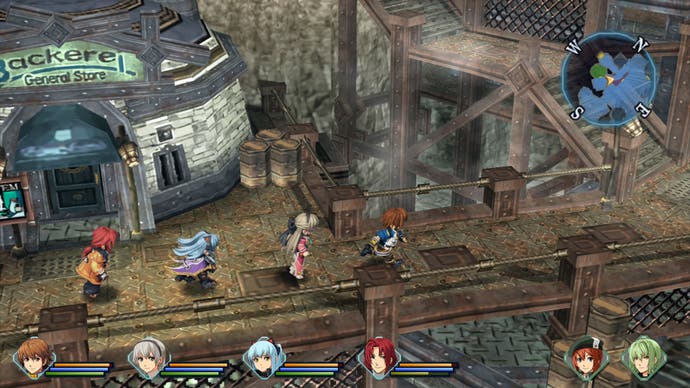
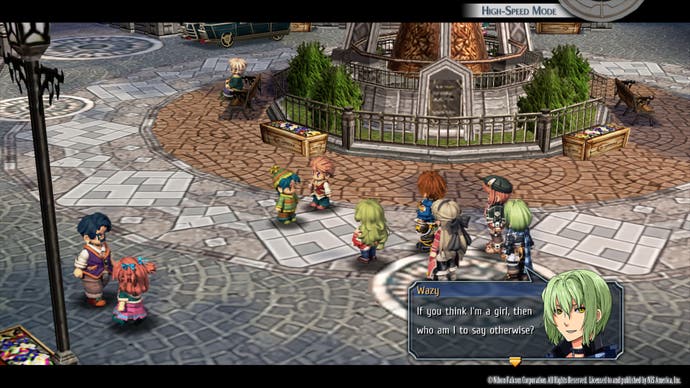
Unfortunately, monsters still plague these highways, so keep your party prepared through a standard equipment system and get ready to fight. Across turn-based battles with grid-based movement, each ally can immediately strike with regular attacks. Arts inflict elemental damage or support abilities like recovering HP, which costs time and EP. Finally, crafts provide unique skills that cost CP, while hitting 100 CP grants everyone an "ultimate attack" called S-Crafts.
Combat's fundamentals remain unchanged from Zero, and that's absolutely fine. You could scan enemies to learn weaknesses and pick them off individually or destroy them through powerful S-Crafts. Whatever you choose, those victories usually feel earned and still require that careful strategic approach. Nihon Falcom rarely misses with its official soundtracks, and Azure's battle theme is no exception; it's one of my favourites in Trails that really energises these fights.
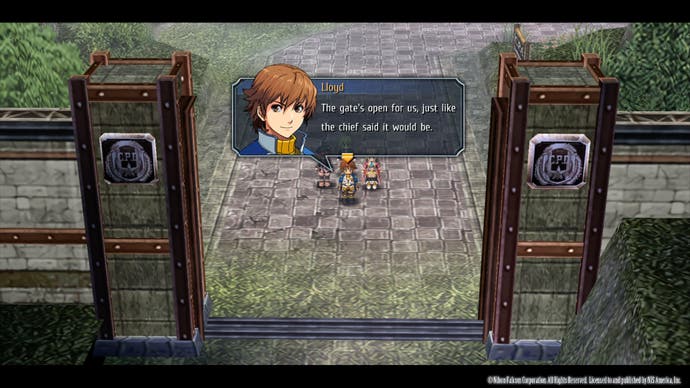
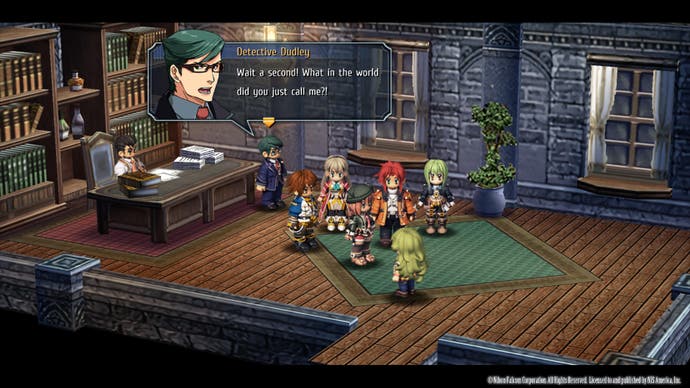
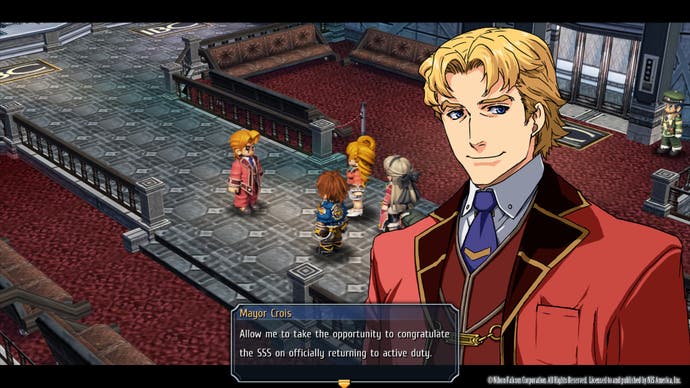
That isn't to say battles are exactly the same, but it's a minor evolution that offers some welcome improvements. Like Cold Steel 2's Overdrive system, Azure introduces a 'Burst' mechanic, which fills up a 'Burst Gauge' by attacking enemies. Bursts aren't always available, but this heals any adverse status effects like Paralysis, cancels enemy Arts in the middle of casting, while the team's Arts have no delay. It's helpful in a pinch and can turn the tide of battle.
There's also Master Quartz. Compared to standard Quartz, which offers stat boosts or new combat abilities, there's only one Master Quartz slot per person, providing different benefits. For example, Mirage recovers EP for every enemy killed, and at level 3, this recovers further upon finishing battles. At level 5, you learn a powerful new Art. It helps expand on Zero's significant combat customization for your party, letting you shape the SSS as you see fit. I've always enjoyed battles in Trails and once again, this series delivers.
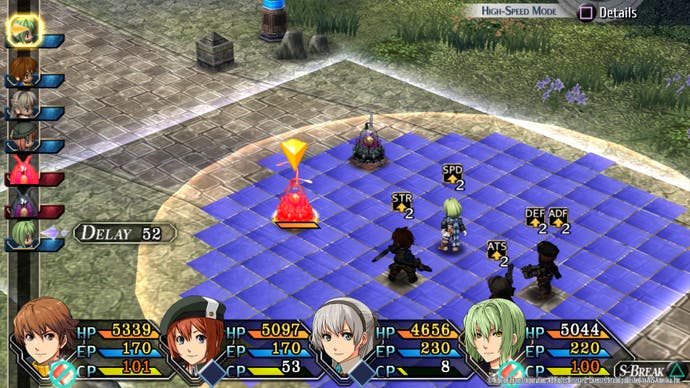
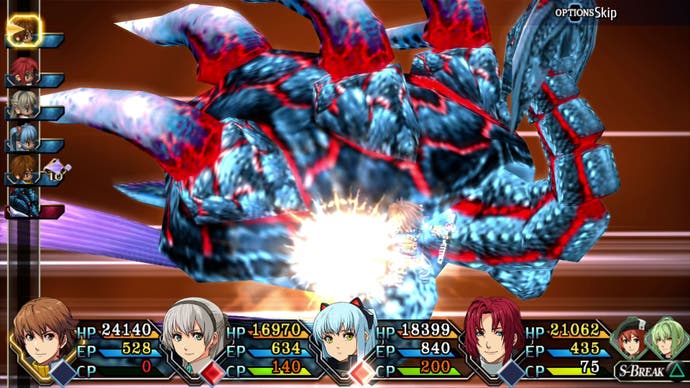
Otherwise, Azure doesn't differ drastically from Zero and while the above changes are certainly welcome, what you'll find is more of a straight continuation than a revolutionary sequel. However, dismissing this as an expansion would undersell it and I'd argue that you can't have one without the other; the two games are pieces of a greater whole and the action remains entertaining in this sequel.
Zero set the scene beautifully with a fine introduction to Crossbell and this colourful cast, showcasing the city-state's problems firsthand. That offers a satisfying adventure in its own right with a focus on corruption and religious fanaticism — and these themes don't entirely disappear — but Azure builds upon those foundations for an equally engaging story with better pacing. There's an exploration of Crossbell's right to self-determination, a rejection of imperialistic ambition, and how people react to such a dramatic upheaval. It delivers a significant narrative pay-off that's best exemplified by the surprisingly sobering ending.
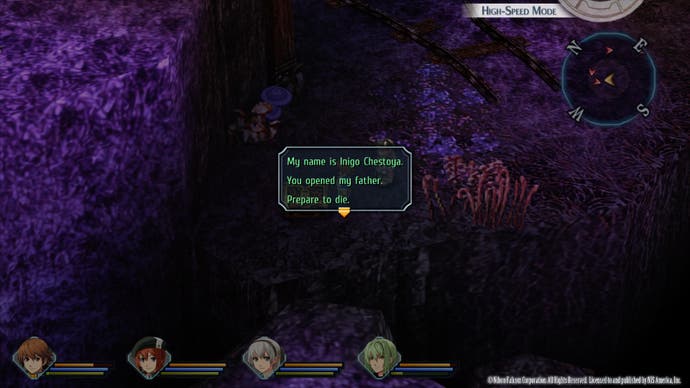
Because events align with the first half of the Cold Steel saga, I already knew how this tale would end, yet that didn't make this ending any less impactful. Like any good story, it's about the journey and Azure is packed with powerful worldbuilding, great storytelling, and strong character development to match. Between the forces driving the new Mayor's initiatives and new factions staking claims to Crossbell's underworld, a tense atmosphere sets the tone nicely.
Crucially, Azure never drops that light sense of humour Trails often excels at, despite the subject matter. Treasure chests still sass you for double-checking them, while silly puns like "Inigo Chestoya" got me laughing. The SSS teasing Lloyd leads to some great scenes, who's often oblivious to how his words could be interpreted romantically. The party's casual chats are always fun to watch and there's a natural rapport between this motley crew, which rarely feels stiff.
It's also a good remaster for this decade-old PSP game, though several moments betray this RPG's age, and the PS4 version's textures could use a clean-up. A barely legible Conference Room sign in Orchis Tower and seeing Mishelam Resort from a distance during the intermission chapter stood out more than most. While I can't verify this independently with Azure, Zero had improved textures and new usability features on Switch and PC that were absent on PS4. I don't know if that's the same here, but these problems didn't bother me too much.
Twelve years haven't diminished its overall splendour, and Trails to Azure marks another fine entry in Nihon Falcom's long standing series. It successfully builds upon Trails from Zero's premise for an exciting follow-up that delivers some engaging storytelling, strong worldbuilding, and enjoyable combat, and I'll remember this finale for a long time yet. With the Crossbell arc fully localised, NIS America has set the stage for Trails into Reverie, and I'm ready for more.
